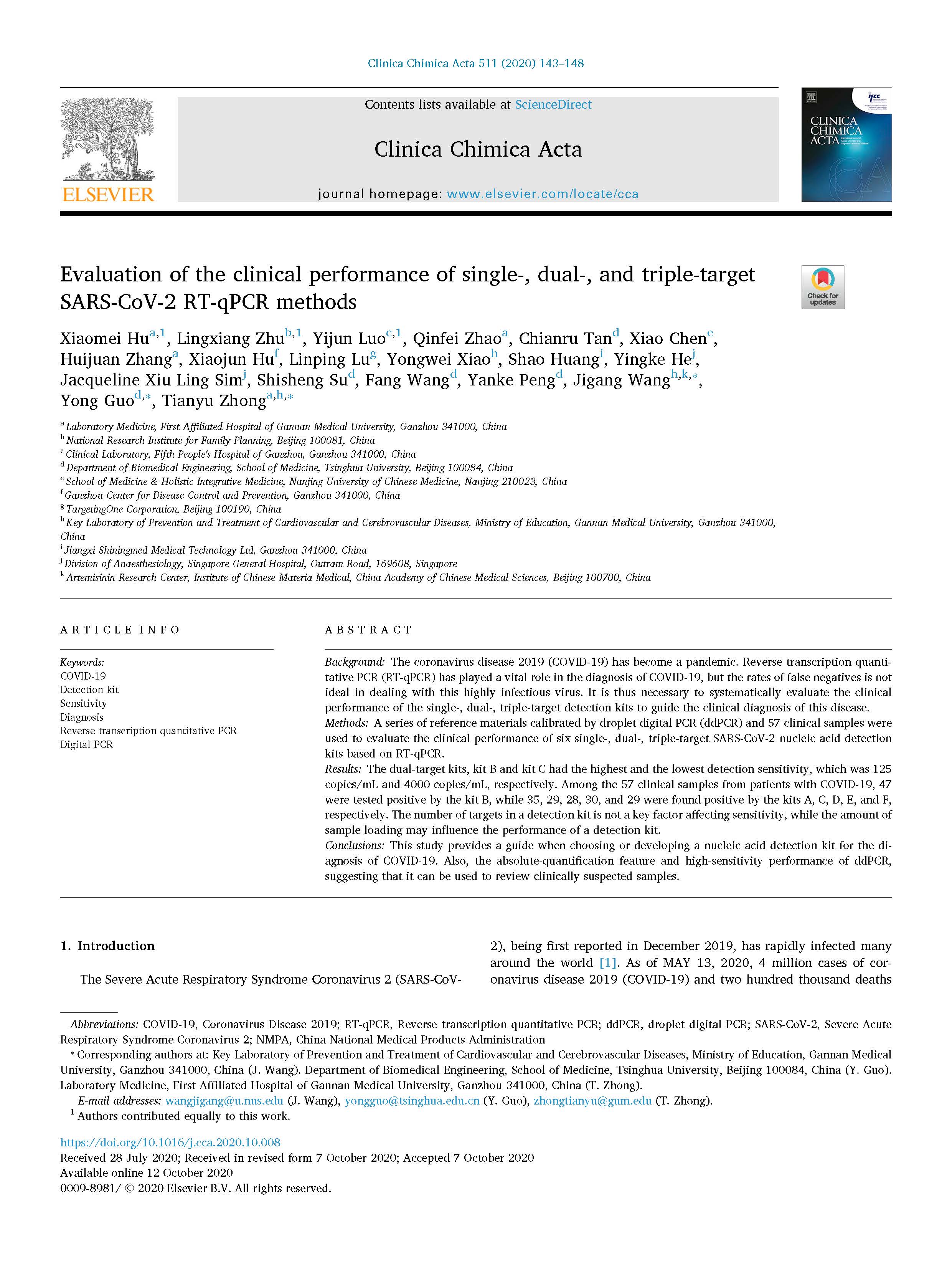release date:2020-10-20

Background: The coronavirus disease 2019 (COVID-19) has become a pandemic. Reverse transcription quanti-tative PCR (RT-qPCR) has played a vital role in the diagnosis of COVID-19, but the rates of false negatives is not ideal in dealing with this highly infectious virus. It is thus necessary to systematically evaluate the clinical performance of the single-, dual-, triple-target detection kits to guide the clinical diagnosis of this disease. Methods: A series of reference materials calibrated by droplet digital PCR (ddPCR) and 57 clinical samples were used to evaluate the clinical performance of six single-, dual-, triple-target SARS-CoV-2 nucleic acid detection kits based on RT-qPCR.
Results: The dual-target kits, kit B and kit C had the highest and the lowest detection sensitivity, which was 125 copies/mL and 4000 copies/mL, respectively. Among the 57 clinical samples from patients with COVID-19, 47 were tested positive by the kit B, while 35, 29, 28, 30, and 29 were found positive by the kits A, C, D, E, and F, respectively. The number of targets in a detection kit is not a key factor affecting sensitivity, while the amount of sample loading may influence the performance of a detection kit.Conclusions: This study provides a guide when choosing or developing a nucleic acid detection kit for the di-agnosis of COVID-19. Also, the absolute-quantification feature and high-sensitivity performance of ddPCR, suggesting that it can be used to review clinically suspected samples.
See all: https://www.sciencedirect.com/science/article/pii/S0009898120304903